CarEdge saved me over 4,500 dollars on a brand new Honda Pilot. I can't say thank you enough.
Price intelligence
Find a wide range of vehicle listings with market insights on new and used listings near you.


Help us personalize your CarEdge experience — it only takes a second.
Your answers help us personalize your CarEdge journey — we’ll follow up with tips and next steps that match your buying timeline.
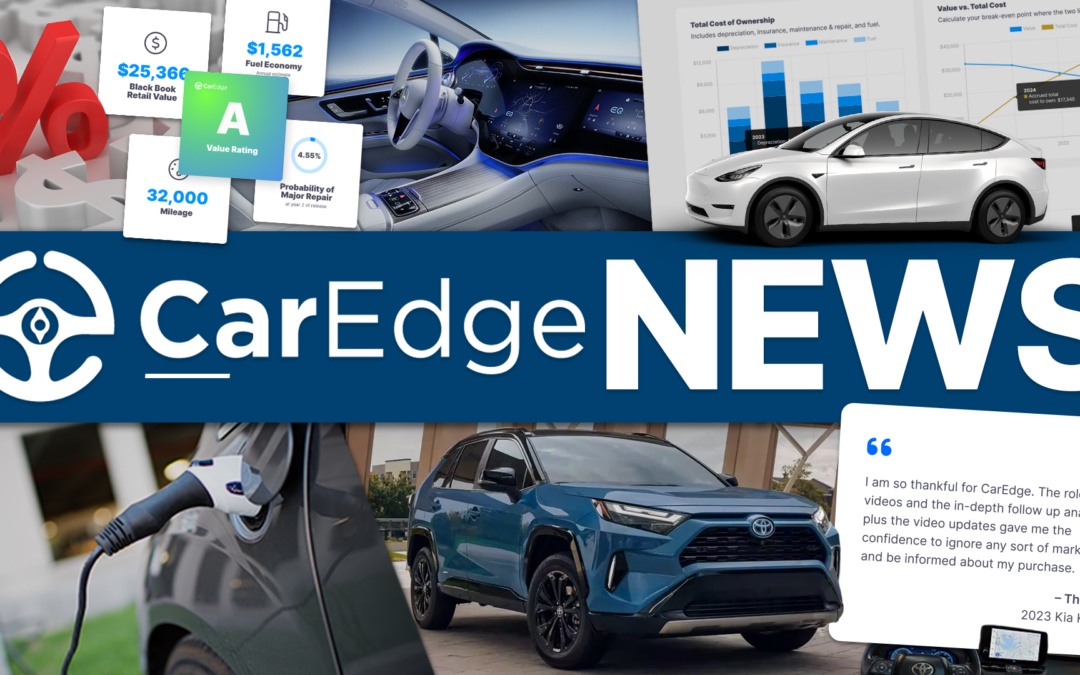
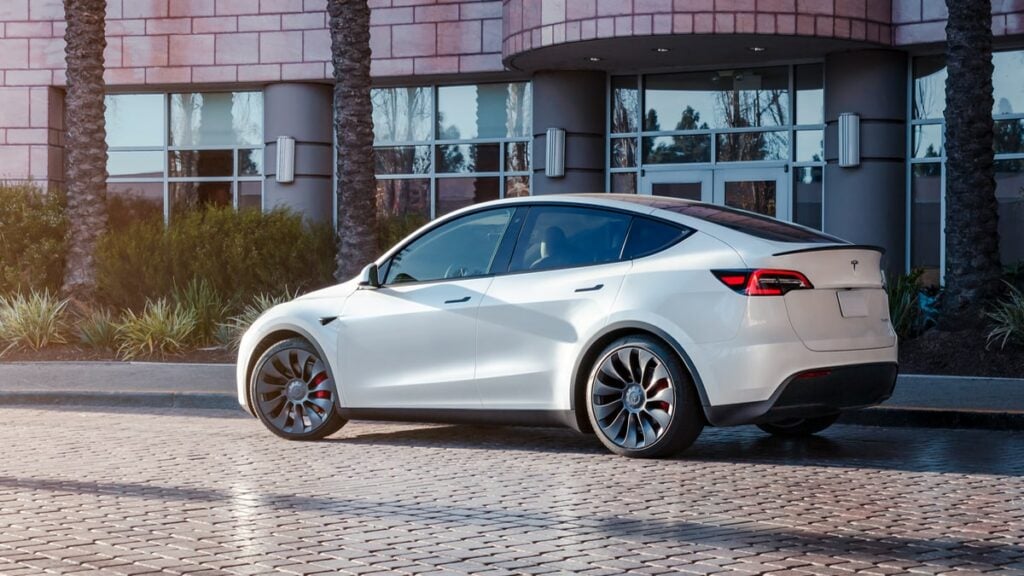
In the ever-evolving landscape of the electric car market, Tesla has been known for frequently adjusting its prices. As we enter 2023, Tesla has already made its sixth price change, and this time it’s a price cut. This is quite the contrast from the past two years, where Tesla prices rose significantly. However, since late 2022, Tesla has been dropping prices by up to 25%. In this article, we’ll take a closer look at Tesla’s latest price adjustment and see just how much the prices have dropped this time around.
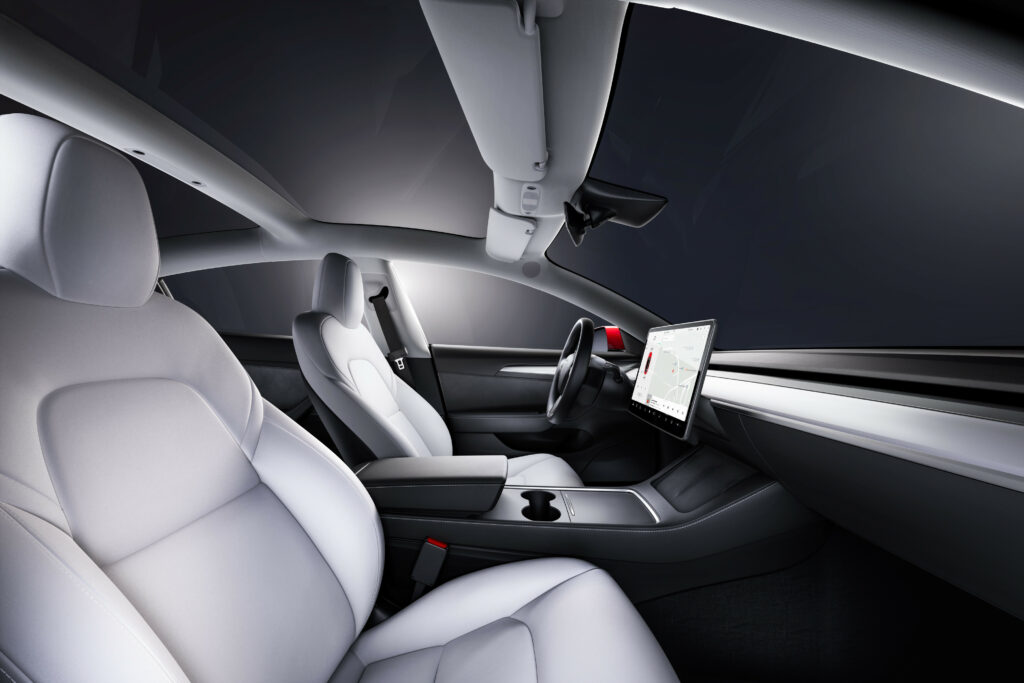
Tesla has made another price adjustment to their popular Model 3, marking the sixth price change of 2023. This time, the Rear-Wheel Drive (RWD) Model 3 has dropped from $42,990 to $41,990, making the lowest-priced Tesla even more affordable. The Model 3 Long Range remains unavailable for the time being, while the Model 3 Performance has been reduced to $52,990. However, it is worth noting that Tesla now advertises that the RWD Model 3 will lose half of the EV tax credit due to new battery sourcing rules. The battery supplier for the LFP batteries, CATL, is almost certainly the reason for the Model 3 losing half of the credit.
Here’s the latest on the EV tax credit from the IRS.
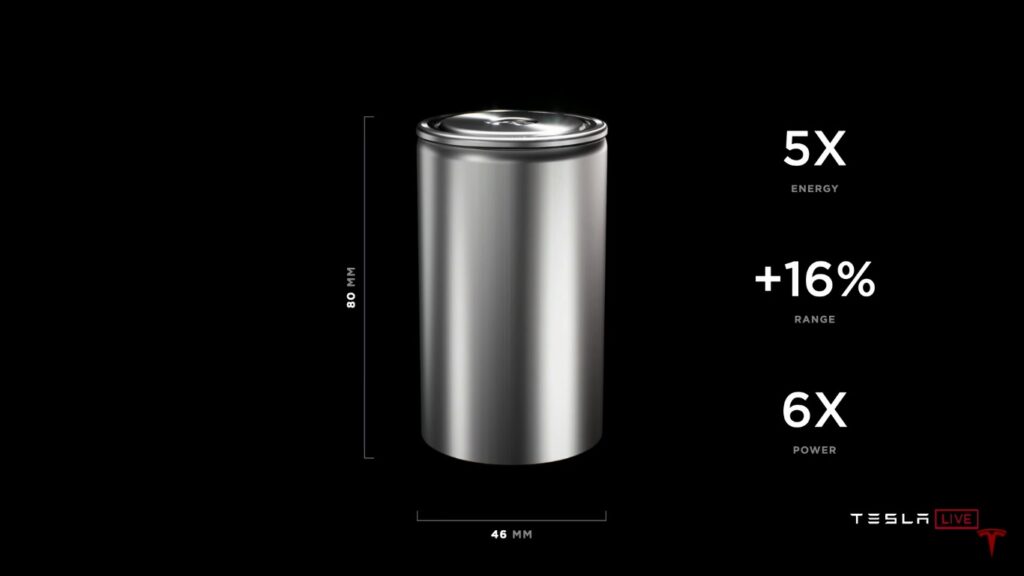
A brand new configuration is now available. The Standard Range AWD Model Y is now on the menu! The Standard Range Model Y is EPA-rated for 279 miles, and starts at $49,990. You can only order it in the 5-seater configuration. What makes the Standard Range Model Y so special? It is the first Tesla to include the new 4680 battery cells. These batteries are more energy dense, and are currently produced in Austin, Texas. The interior of the Standard Range Model Y is identical to the higher trim options.
The best-selling EV in America, the Model Y Long Range AWD, is back down to $52,990. In early 2023, Tesla had increased the price for this spec by $2,000, but has now eliminated that price hike. We’re back to where prices were several weeks ago.
The Model Y Performance received a price cut too, and is now down to $56,990.
Compare Model Y trim options, specs and prices at Tesla.com
The Model S sedan now starts at $84,990, a $5,000 cut from last month’s price. The Model S is rated for up to 396 miles of range. The Model S and X both feature the controversial yoke steering wheel.
The Model X starts at $94,990, also a $5,000 drop. The Model X is rated for up to 333 miles of range. It’s the quickest SUV on the market (and third-row at that…), with a 0-60 mph time of just 2.5 seconds.
With and without the EV tax credit, here’s where Tesla prices stand after the latest price cuts.
| Model 3 SR | Model 3 LR | Model 3 Perf. | Model Y SR | Model Y LR | Model Y Perf. | |
| Current Price | $41,990 | $48,990 | $52,990 | $49,990 | $52,990 | $56,990 |
| Eligible Credit | $3,750 | $7,500 | $7,500 | $7,500 | $7,500 | $7,500 |
| Price With Tax Credit | $38,240 | $41,490 | $45,490 | $42,490 | $45,490 | $49,490 |
The automaker delivered 422,875 vehicles globally in the first quarter. That’s a record for Q1 for Tesla, but it shows a slowed pace of growth. With the economy on shaky ground, many drivers are cutting back on discretionary spending. Yes, that includes your favorite Tesla. Throw in new federal guidance on the EV tax credit, and it starts to look like Tesla had more reasons to drop prices than not to.
We’ll stay on top of the latest. Check out these other reader favorites:
The Best Electric Cars For Families
Top EV Models of 2023 Compared for Performance, Range, and Value

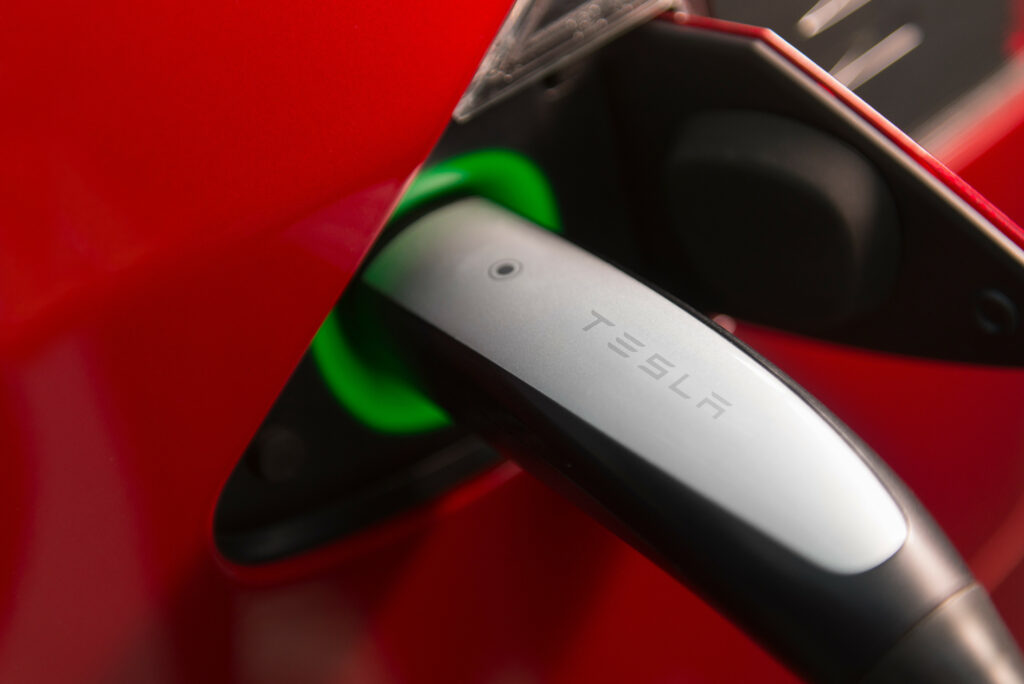
January 2023 Update: Tesla slashed prices for new models by up to 20% overnight. The top-selling Long Range Model Y dropped from $65,990 to $52,990. This means that not only are all Teslas cheaper now, but most Model 3 and Model Y spec options are now eligible for the $7,500 EV tax credit in the U.S., at least until March when more detailed eligibility requirements are to be released by the government.
Lower new Tesla prices will immediately hit used Tesla prices hard. With these changes, in 2023, expect used Tesla prices to be at least 20% lower than they were in 2022.
Now, on to the original article.
Used car prices have fallen over 25% in 2022, and have a lot further to fall. Generally, used electric car prices have been reluctant to drop, at least compared to the steep declines seen in other vehicle classes such as luxury SUVs, crossovers and compact cars. The picture is different for used Tesla prices heading into 2023. Long the best-selling EVs by raw numbers and market share (more on that here), Tesla became the darling of auto market speculation in 2022. Thousands of Tesla buyers flipped their new cars for a profit on the used car market just weeks to months after taking delivery.
In 2023, used electric car prices are in for a rude awakening. Here’s where things stand today, and where prices are headed in the near future.

According to Edmunds data shared with Reuters, used Tesla prices were down 17% in December for the July peak. In July, the average price of a used Tesla was $67,297, but six months later the average price had fallen to $55,754. It’s all about perspective here: the overall used car market dropped 4% at the retail level during the same period, and wholesale prices dropped much more, as you can see here.
Used Teslas are sitting on dealer lots for much longer these days. In November, used Teslas sat on dealer lots for 50 days before selling on average, compared with 38 days for all used cars.
Who would’ve guessed it? Tesla cars couldn’t remain appreciating assets forever. “You can’t sell your current Tesla for more money than you paid for it, which was true for a lot of the past two years,” said Karl Brauer, executive analyst at car sales website iSeeCars.com.
As we approach the new year, there are 1,085 used 2022 model year Teslas for sale on CarEdge Car Search. A third of these nationwide listings have less than 5,000 miles on the odometer. In fact, roughly one third of ALL used Tesla listings are 2022 models. More noteworthy is how long used Teslas are remaining on the market.
As recently as July 2022, analysts at iSeeCars found that the Tesla Model Y was the fastest-selling used car in the United States. The Model 3 and Model X were #5 and #6 on the list, right behind the Toyota Prius hybrid and the all-electric Ford Mustang Mach-E. It was a time of record gas prices, and electric mobility was very appealing.
Fast forward to the last days of 2022, and 69 percent of the 5,800 used Teslas on the market nationwide have been listed for greater than 38 days, the overall industry average. Nearly 40 percent have been listed for sale for over 90 days.
And then there were the flippers. Tesla flippers made good money for a while. Wait times were between two and six months for factory-ordered Tesla EVs. Flippers would order a brand-new Tesla from the factory (often paying cash), with the intention of selling for a premium to an impatient buyer weeks if not days after taking delivery. The LA Times featured once successful Tesla flippers in this fascinating story.
The Tesla flippers flooded the market with gently used Teslas, the buyers vanished, and we’re left with plummeting prices for used Teslas.
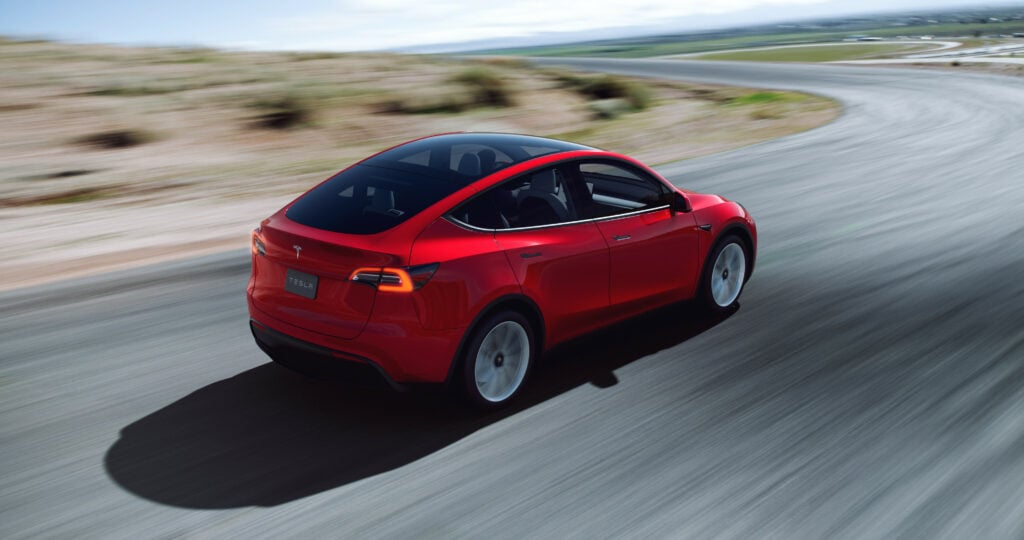
These are the biggest factors that will influence used Tesla prices in 2023:
We recently took a deep dive into why our auto experts think used car prices will continue to decline in 2023. Historically, Tesla has bucked the mainstream trends, but that era may have come to a close. Here’s a summary of what our team expects in 2023:
Why are used car prices so likely to drop further?
We expect used Tesla prices to soften in 2023, especially when considering yet another factor, revised EV tax credits. More on that below.
The Inflation Reduction Act of 2022 replaced the original EV tax credit in place since 2009 with new rules and eligibility requirements. These are the biggest changes taking effect in 2023 for new EVs:
There’s now a used EV tax credit, but before you get too excited, the used EV tax credit has the following eligibility requirements in 2023:
Used Tesla prices have fallen, but they’ll have to fall a whole lot more to approach the $25,000 price cap. Barring an astonishingly severe downturn, used Teslas won’t qualify for the used EV tax credit in 2023.

In addition to higher interest rates, rising competition, a flooded market and general economic worries, consumer demand for used Tesla cars will decline further simply because brand new Teslas will again qualify for EV tax credits, for the first time since 2019. Of course, they’ll have to fall under the strict price caps of the new law. Few buyers will want to pay over $50,000 for a used Tesla Model 3 when a brand-new one could be had for less with the new tax credit. This continues in 2024, when the EV tax credit becomes a point-of-sale rebate.
CarEdge provides depreciation forecasts for Tesla models using real market data. The graph below shows expected depreciation for the Tesla Model Y over the next decade.
See Tesla cost of ownership and depreciation forecasts at caredge.com
Now more than ever, you CAN negotiate used Tesla prices. Floorplanning costs are high, meaning that car dealers are paying more each day that a used Tesla sits on their lot. With CarEdge Car Search, you can see exactly how long a car has sat on the lot, and then use that information as leverage to negotiate lower prices.
We love free stuff as much as the next guy. Check out these 100% free, no-strings-attached car buying guides.
Car Buying Cheat Sheet – Take This With You!
Used Car Price Trends (Updated Weekly)
The Car Buyer’s Glossary of Terms, Lingo, and Jargon
The Best and Worst Electric Cars in 2023
See all free guides, news and reviews here.


One third of American drivers are seriously considering going electric as generous tax credits, fuel savings and reduced emissions lure the masses towards EVs. My own household made the switch in early 2022, and we’re never going back to ICE. In hopes of adding clarity to the current EV market, we’ve created this resource to share what we think are the BEST electric cars, trucks and SUVs in 2023. We’ve also shared what we think are the worst.
These models are stand-outs for their value. Range, charging speed and available features are given priority over performance in our analysis.
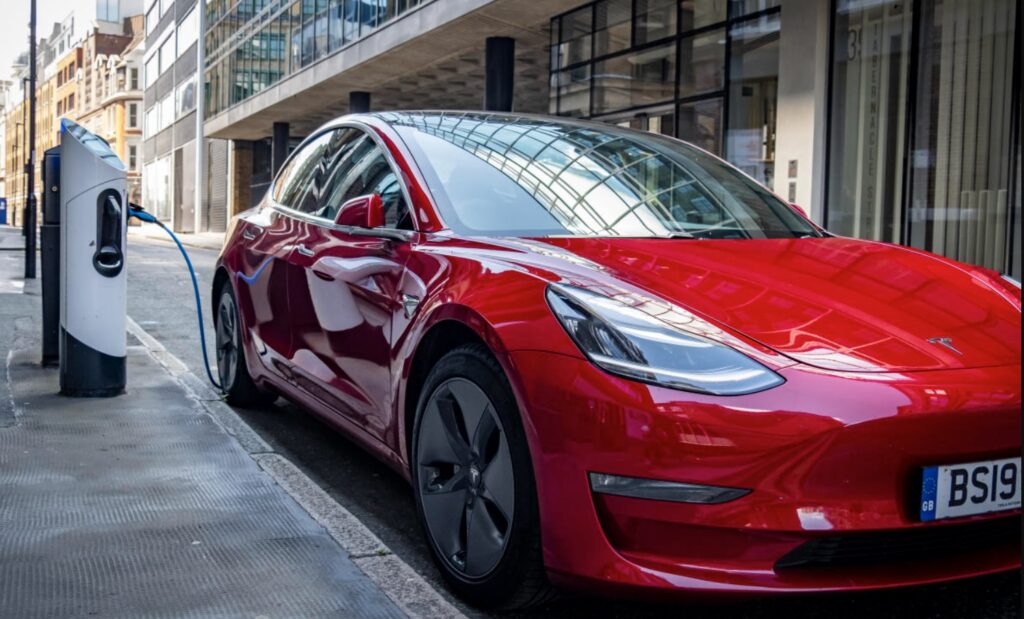
Price: $41,990
Range: 272 miles
Fast charging (adding 200 miles in 20-30 minutes)
Why it’s great: The Tesla Supercharger network makes cross country travel hassle-free. Tesla charges are very reliable, and with 1,500 locations in all 50 states, finding one is rarely an issue.
Plus, the price you see on Tesla’s online configurator is the price you pay (before taxes and required fees, of course). While legacy automakers continue to struggle with out-of-control dealer markups, Tesla and other direct-to-consumer EV makers have the upperhand on pricing.
See pre-owned Tesla inventory near you, or configure a new Tesla at Tesla.com
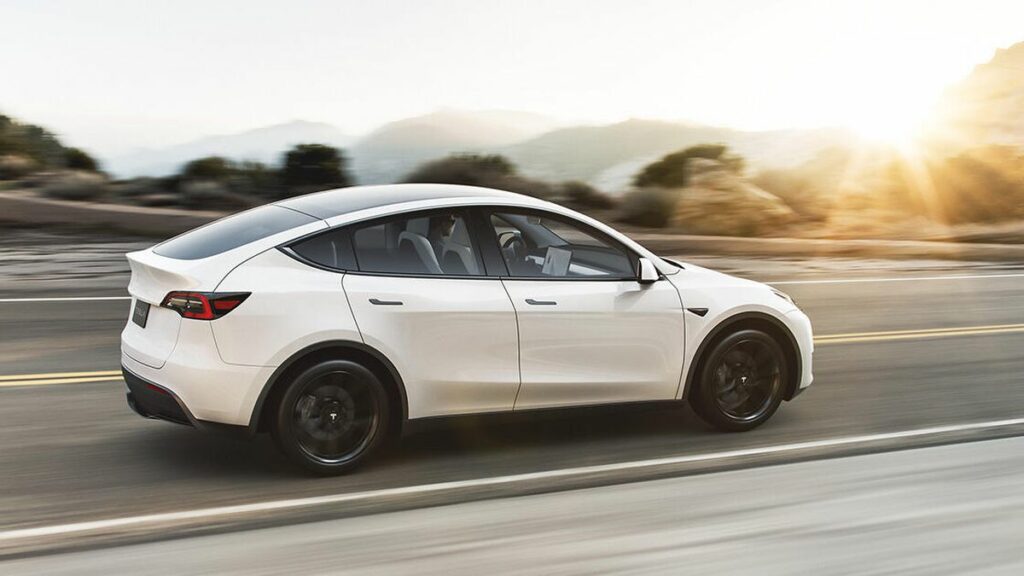
Price: $52,990+
Range: 330 miles
Fast charging (adding 200 miles in 20-30 minutes)
Why it’s great: The Model Y is the larger, more family-oriented version of the Model 3. Last year, the Model Y overtook the 3 as the best-selling EV in America. Although it is the most expensive model on this list, if you can afford it, the ease of public charging, great range, spacious interior and exhilarating performance all make this the sweet spot for many buyers. Plus, there are no dealer markups.
But wait, there’s more. Both the Model Y and Model 3 are available for delivery soon after placing an order. Tesla wait times are between one and three months as of late 2022. That’s about as good as it gets in today’s EV market.
Should you ever decide to sell, both of these Teslas have amazing resale value.
See pre-owned Tesla inventory near you, or configure a new Tesla at Tesla.com
Check out this resource: The Best Electric Vehicles Under $50,000
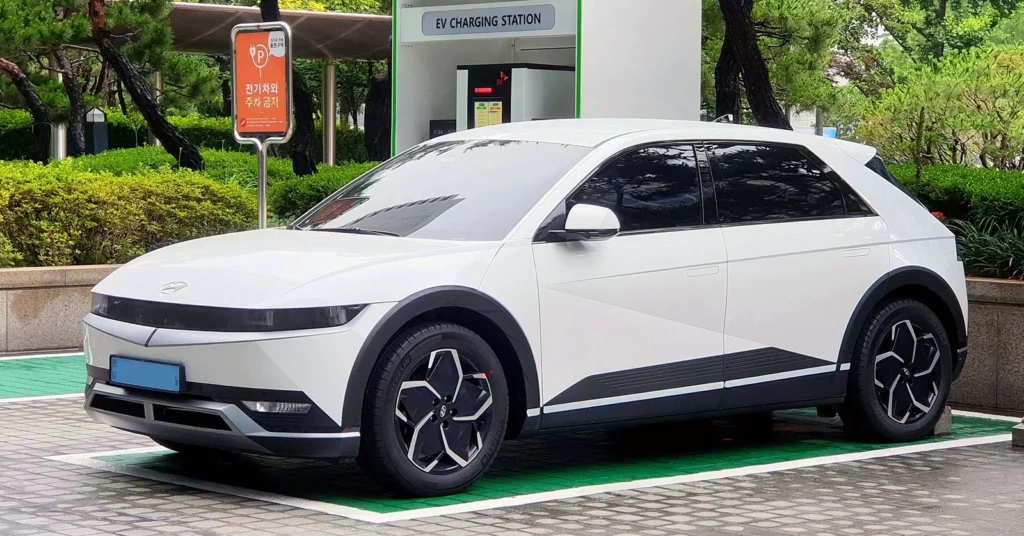
Price: $46,250 (dealer markups are common but negotiable)
Range: 303 miles
Fast charging: Add 200 miles of range in 20 minutes
Why it’s great: The 2023 IONIQ 5, Kia EV6, and Genesis GV60 are the first models powered by Hyundai Motor Group’s Electric Global Modular Platform. This is next-gen 800-Volt architecture at (relatively) affordable prices, and that’s awesome.
Plus, the IONIQ 5 is spacious, and looks really cool. Sadly, Hyundai has had a very difficult time scaling up production due to supply chain constraints, so expect to either wait for at least six months, or battle outrageous dealer markups to get your hands on a rare allocation.
I love my IONIQ 5. Here’s a review of my ownership experience so far.
See Hyundai IONIQ 5 inventory near you.
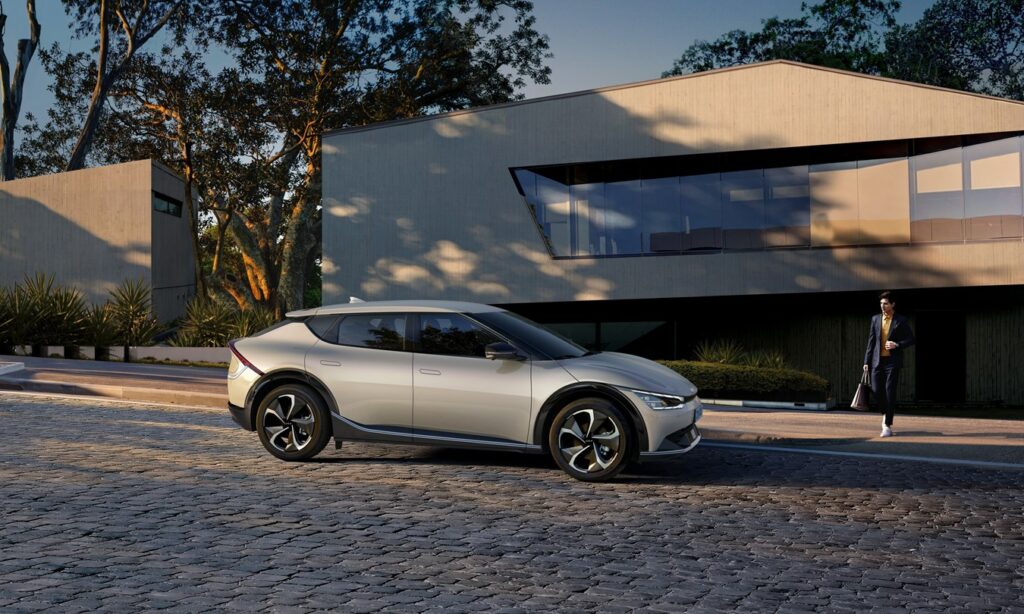
Price: $49,795 (dealer markups are common but negotiable)
Range: 310 miles
Fast charging: Add 200 miles of range in 20 minutes
Why it’s great: Kia’s version of the IONIQ 5 looks completely different, with very similar specs. That’s because both models share the e-GMP platform with great range and even better charging.
The 2023 EV6 has slightly more availability than the IONIQ 5 right now. For the 2023 model year, Kia decided to drop the “Light” base model, kicking the entry-level price all the way up to nearly $50,000.
As always, I recommend everyone take a test drive before dismissing EVs. They’re quiet, efficient and fun. The EV6 would be a great one to take for a spin.
See Kia EV6 inventory near you.
Here’s every electric truck’s pricing and range.
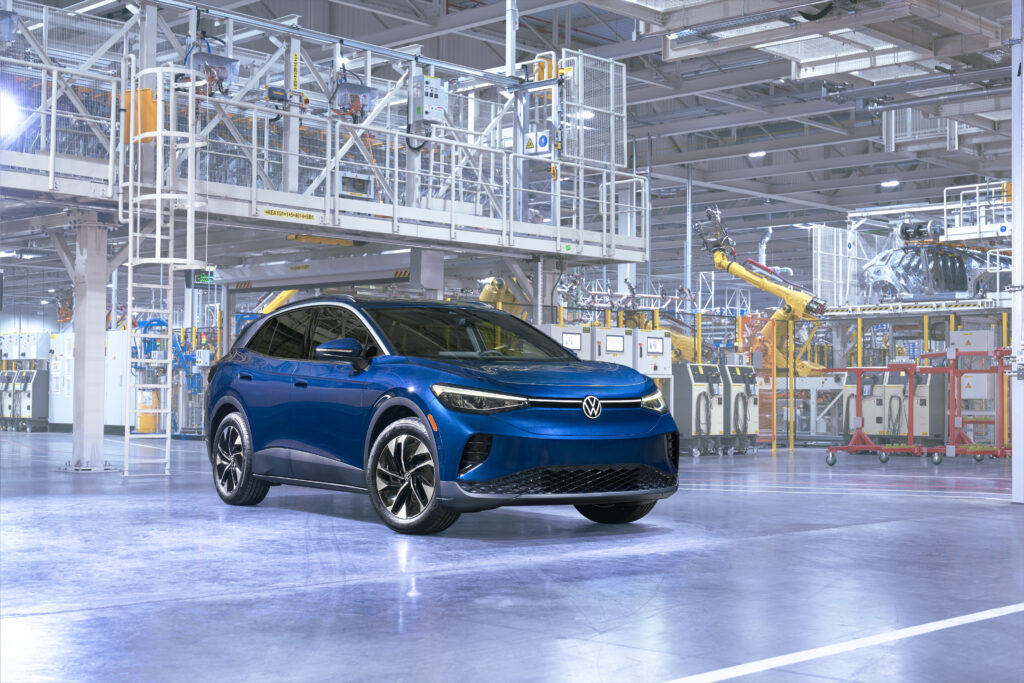
Price: $42,495
Range: 275 miles
Fast charging: Add 190 miles of range in 28 minutes
Why it’s great: The VW ID.4 is now made in America at Volswagen’s Chattanooga, Tennessee factory. That means it will qualify for the revised EV tax credit (up to $7,500), as long as your VIN confirms that it is an American-made ID.4. I was impressed during my test drive of the ID.4. It rides like a luxury crossover, and has plenty of acceleration when you need it. However, it’s definitely the least sporty of this bunch, but it’s also the least expensive.
Now made in America, there is also a new cheaper option starting at $37,495. However, with public charging infrastructure slow to build out, the expected 208 miles of range is not enough for us to confidently recommend it to anyone but those who expect to stick around urban areas 95% of the time. The ID.4 Pro, on the other hand, is exceptional value with the EV tax credit.
See Volkswagen ID.4 inventory near you.
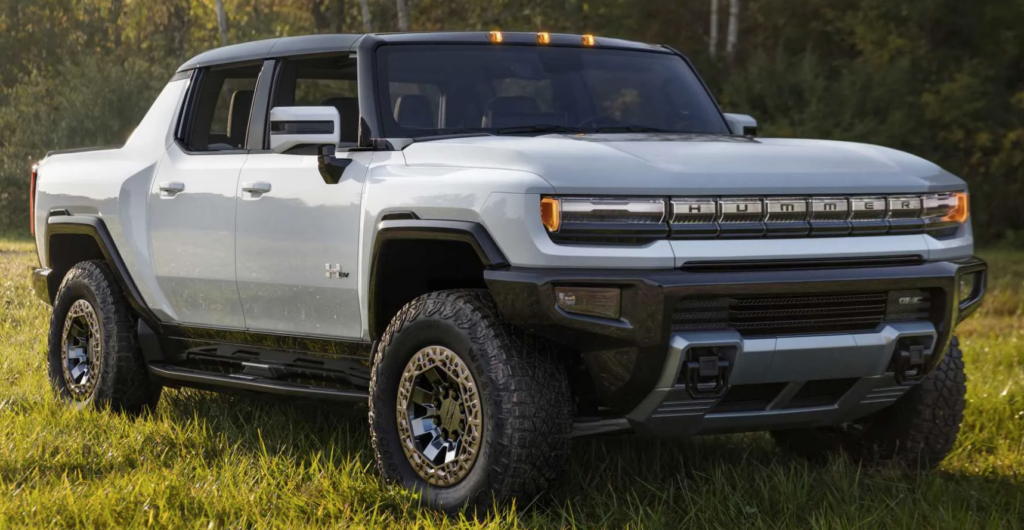
Price: $90,000-120,000 (before markups of up to $100,000)
Range: 329 miles
Why it’s horrible: Where do we start? The Hummer EV costs $100 to charge (because it has a MASSIVE 212 kilowatt-hour battery pack), weighs 9000 pounds (that’s 2x the weight of the typical F-150), and is horrible for the environment. If you’re looking to go green with your EV purchase, this isn’t it. It’s also very expensive, but that’s less surprising these days.
At auction, we’ve seen many Hummer EVs selling for over $200,000. No thanks.
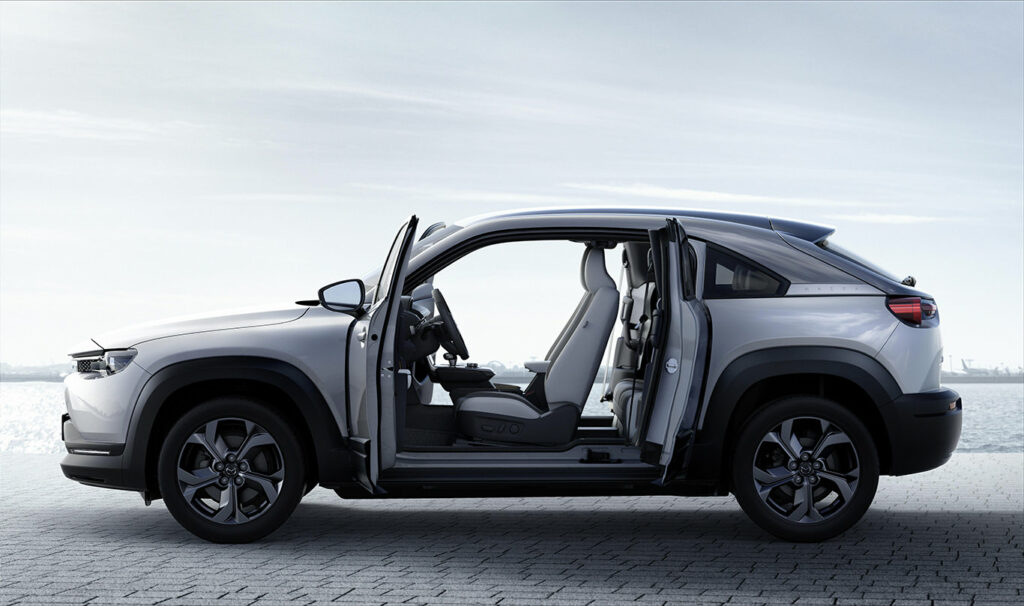
Price: $34,000
Range: 100 miles
Why it’s horrible: If you’re considering the Mazda MX-30, send me an email at [email protected]. I’d like to talk you out of it. I have nothing against Mazda as a brand (they make some awesome cars), but I am very against anyone buying an electric car with just 100 miles of range in 2022. Sure, maybe it’s just for around town. Have you thought about resale value? With barely 100 miles on a charge and slow charge times of around one hour, I’m afraid Mazda’s first EV won’t be worth its scrap metal value in a decade.
Other options to consider at this price point? The Nissan LEAF, base Volkswagen ID.4, Chevrolet Bolt, and soon-to-come Chevrolet Equinox EV are all far more capable for under $40,000.

Price: $34,000
Range: 110 miles
Why it’s horrible: I sure hope CarEdge’s own Ray Shefska forgives me for bashing the electric MINI, but with 110 miles of range and slow charging, I don’t see a single reason why anyone should consider this EV. It’s one of the last ‘compliance cars’ in the EV market.
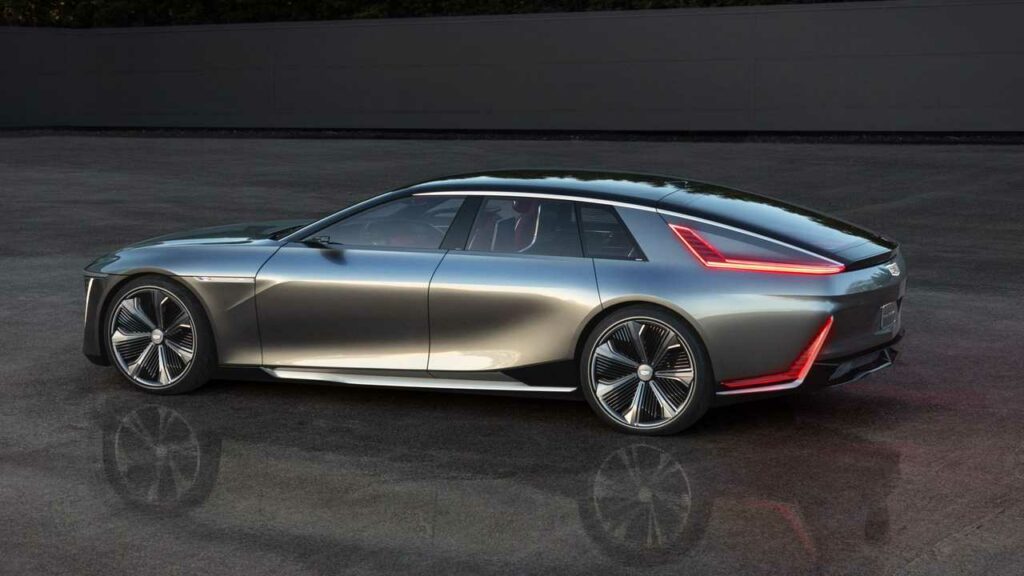
Price: $300,000+ (yes, count those zeroes)
Range: 300+ miles
Why it’s horrible: Would you pay Rolls Royce money for a Cadillacl? GM seems to think you would. I’m all for going all-out on EV design and innovation, but when Cadillacs cost more than houses, I can’t help but shutter. But hey, it will be hand-built.

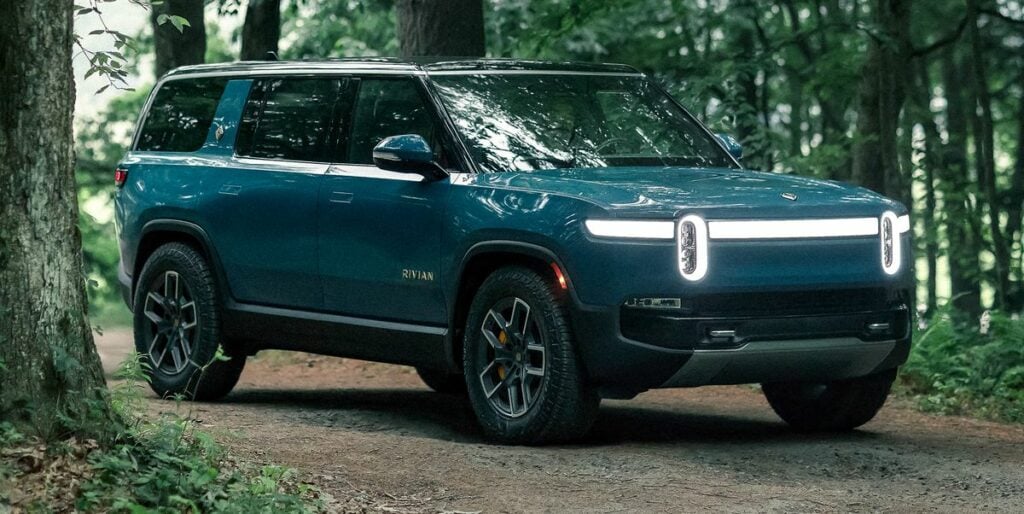
If you’re thinking about hauling the kids off to school with zero emissions, today’s EVs offer more range, faster charging and greater fuel savings. The best electric cars and SUVs for families are available in a wide range of options to meet your needs, and an even wider range of price points. These are the best electric crossovers and SUVs on sale in 2024.
If you need space for four, five, or maybe six people (plus those furry friends), these 3-row electric SUVs are built for you.

Reviewers absolutely LOVE the new Kia EV9. As the first mainstream 3-row electric SUV to hit the American market, the EV9 was highly anticipated. We can confirm that it has been worth the wait. Step inside this full-size SUV, and you’ll immediately note the spaciousness and luxurious feel of this premium-feeling Kia. This one is worth a test drive.
Price: $56,395 – $75,395
Range: 230 – 304 miles
Charging (public fast charger): can add 200 miles in 18 minutes
Passenger volume: 159 cubic feet (three rows, seats 6)
Cargo volume behind second row: 44 cubic feet
Total cargo volume: 82 cubic feet
NHTSA safety rating: Not Rated (5-Star Euro Rating)
See Kia EV9 new and used listings with local market data.

Rivian is just beginning to ramp up production and sales of the Rivian R1S, the full-size electric SUV companion to the R1T electric truck. The 2024 Rivian R1S is a blend of luxury and off-road capability. This 3-row EV is made in America, at a converted manufacturing facility in Normal, Illinois. We can only recommend this great vehicle if you live within a reasonable distance of one of Rivian’s service centers. If you end up needing service, you don’t want to pay for a long-distance tow truck!
Price: Starting at $74,900
Range: 316 miles
Charging (Public fast charger): can add 140 miles in 20 minutes
Passenger volume: (three-row SUV)
Cargo volume behind second row: 46.7 cubic feet
Total cargo volume: 104.7 cubic feet
Safety rating: Top Safety Pick+ by IIHS
Learn more about the Rivian R1S.
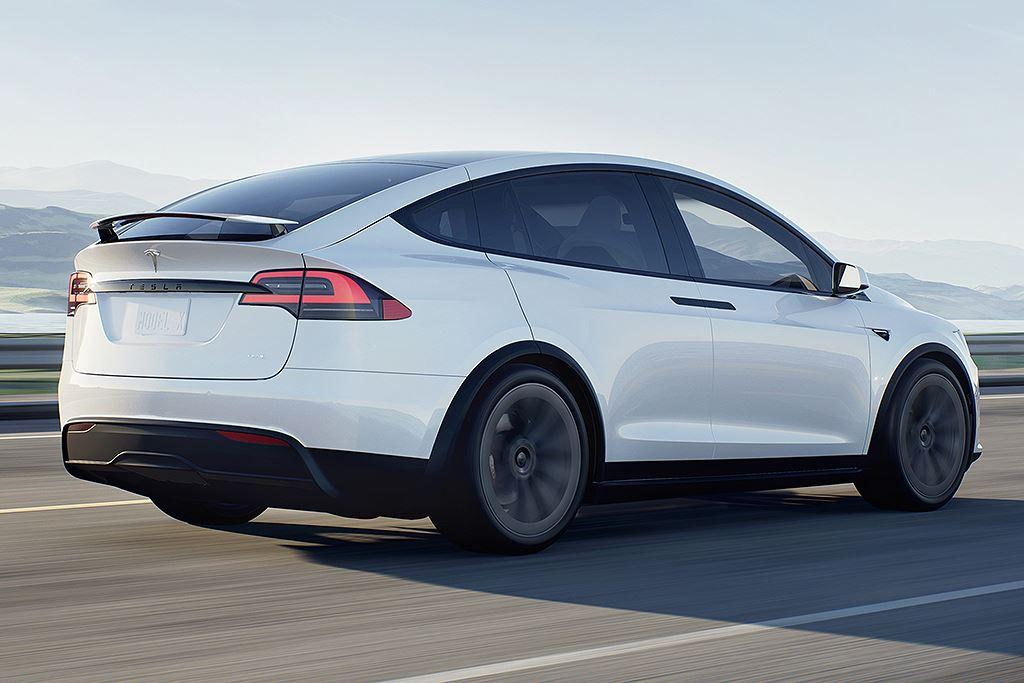
With gull-wing doors and a massive glass roof, there’s no hiding the fact that the Tesla Model X is a luxury SUV. In 2024, the Model X has seen multiple price cuts, and now starts around $80,000.
Price: $79,990 to $120,000+
Range: 351 miles
Charging (Public fast charger): can add 200 miles in 15 minutes
Passenger volume: N/A (three rows)
Cargo volume behind second row: 42.5 cubic feet
Total cargo volume: 92.3 cubic feet
Safety rating: 5 stars from Euro NCAP
See Tesla Model X new and used listings.
These electric crossover SUVs are the highest-rated, most-loved EVs for families today. Although they lack a third row, they’re plenty big enough for most families of four. Spaciousness, pricing, range and charging speeds vary from one electric model to another. We’ve also included NHTSA safety ratings if they’re available.

The Model Y is the best-selling electric vehicle in America. Model Y prices have fallen 20% from 2022’s highs. It’s now possible to buy a Model Y for well below $50,000 with the point-of-sale EV tax credit. Although it’s known for autonomous driving, the full capability (known as FSD) is a $15,000 package.
Price: $49,990 to $74,990
Range: 279 to 330 miles
Charging (Public fast charger): can add 200 miles in 15 minutes
Passenger volume: 106 cubic feet
Cargo volume behind second row: 26.6 cubic feet
Total cargo volume: 72 cubic feet
NHTSA safety rating: 5 stars
See Model Y new and used listings.
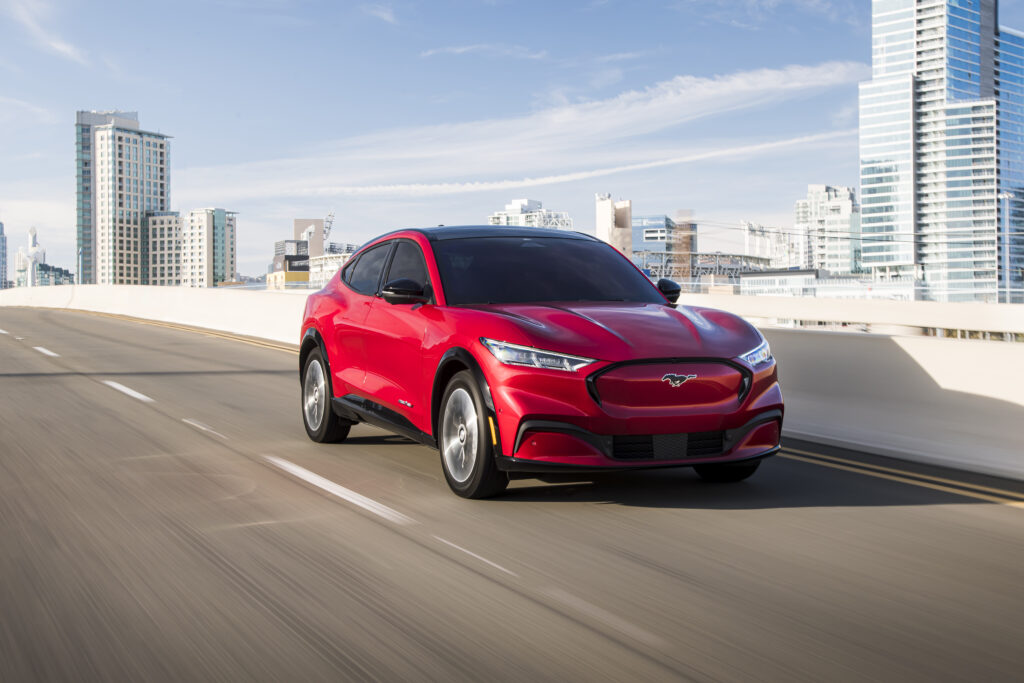
Ford’s first serious EV is very popular among small families and speed freaks alike. If the Mustang brand has a special place in your heart, this just might be the EV for you.
Price: $45,995 to $63,575+
Range: 224 to 312 miles of range
Charging (Public fast charger): can add 120 miles in 20 minutes
Passenger volume: 104.5 cubic feet
Cargo volume behind second row: 29.7 cubic feet
Total cargo volume: 59.7 cubic feet
Safety rating: IIHS Top Safety Pick
See Mustang Mach-E new and used listings.

I can confidently say that the IONIQ 5 is a great family car, and that’s because my wife and I haul our own kiddo around in this segment-bending electric crossover with hot hatch flavors. The IONIQ 5 has won many awards, including Car and Driver’s 2022 EV of the Year. It charges VERY fast, and that’s what I love most about the car.
Price: $40,925 to $57,400+
Range: 220 to 303 miles
Charging (Public fast charger): Adds 200 miles of range in 20 minutes
Passenger volume: 106.5 cubic feet
Cargo volume behind second row: 27.2 cubic feet
Total cargo volume: 59.3 cubic feet
Safety rating: Top Safety Pick Plus from IIHS
See Hyundai IONIQ 5 new and used listings.

The spaceship-styled EV6 is Kia’s version of the Hyundai IONIQ 5, which shares the e-GMP electric powertrain. The Kia EV6 has slightly less passenger and cargo space than the Hyundai, but it’s better range and equally fast charging make it an obvious feature on this list of best electric cars for families.
One thing to bear in mind: most EVs, including the EV6 and IONIQ 5, have a flat floor, meaning that there’s a bit more interior space than it would appear. The best thing you can do is check one out in person!
Price: $43,920 to $61,600+
Range: 274 to 310 miles
Charging (Public fast charger): Adds 200 miles of range in 20 minutes
Passenger volume: 103 cubic feet
Cargo volume behind second row: 24.4 cubic feet
Total cargo volume: 50.2 cubic feet
Safety rating: In Europe, the EV6 earned 5 stars
See Kia EV6 new and used listings.
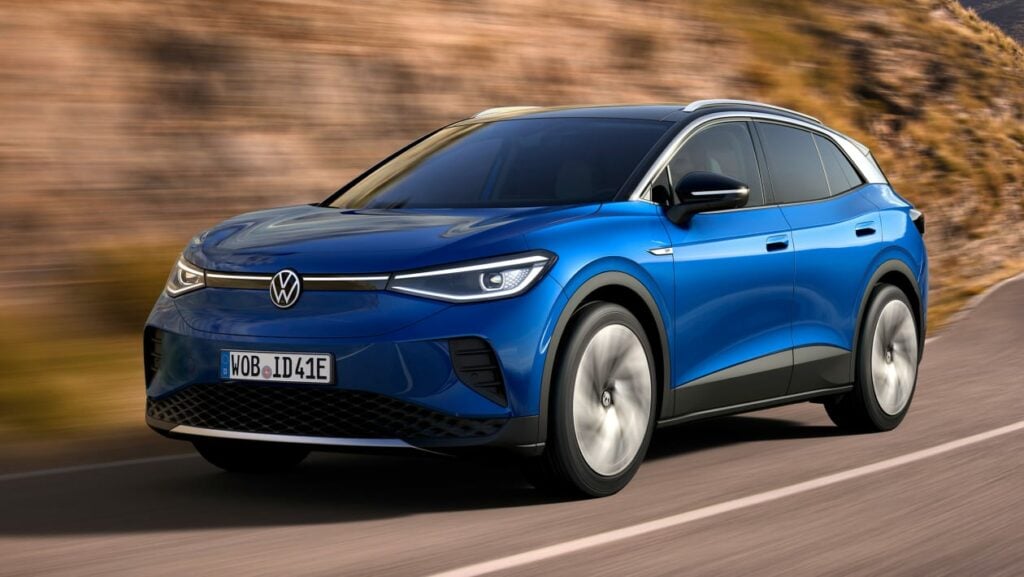
We have great news for those in search of an affordable and capable EV that qualifies for the federal tax credit. The ID.4 is now made in Tennessee at Volkswagen’s Chattanooga plant! The newest American-made EV is equipped with decent range, okay charging, and a comfortable interior that’s designed for families. However, don’t expect Tesla-level infotainment. The ID.4 is best for those who are content with the simpler things in life.
Charging speeds are merely okay, but the 2024 model year gets a decent improvement.
Price: $38,790 to $55,000
Range: 208 to 275 miles
Charging (Public fast charger): Adds up to 190 miles of range in 30 minutes
Passenger volume: 99.9 cubic feet
Cargo volume behind second row: 30.3 cubic feet
Total cargo volume: 64.2 cubic feet
Safety rating: Top Safety Pick Plus
See Volkswagen ID.4 new and used listings.
The Inflation Reduction Act eliminated the original EV tax credit and replaced it with a completely revised tax credit. For vehicles that qualify, up to $7,500 in tax credits are available. However, the incentive is based on battery sourcing, which will be determined by the automakers. Income limits restrict buyer eligibility, too. See the full details on qualifying models here.
There’s also a used EV tax credit for the first time, but a price cap of $25,000 eliminates every single family EV on this list.
Generous state and local incentives may make the switch to an EV much more affordable, depending on where you live. See the most generous state-level EV incentives, and check with the DSIRE clean energy incentive database to find more incentives for your specific location.
Which family-size electric car are you considering? Let us know in the comments, or better yet join the conversation at our CarEdge Community forum.
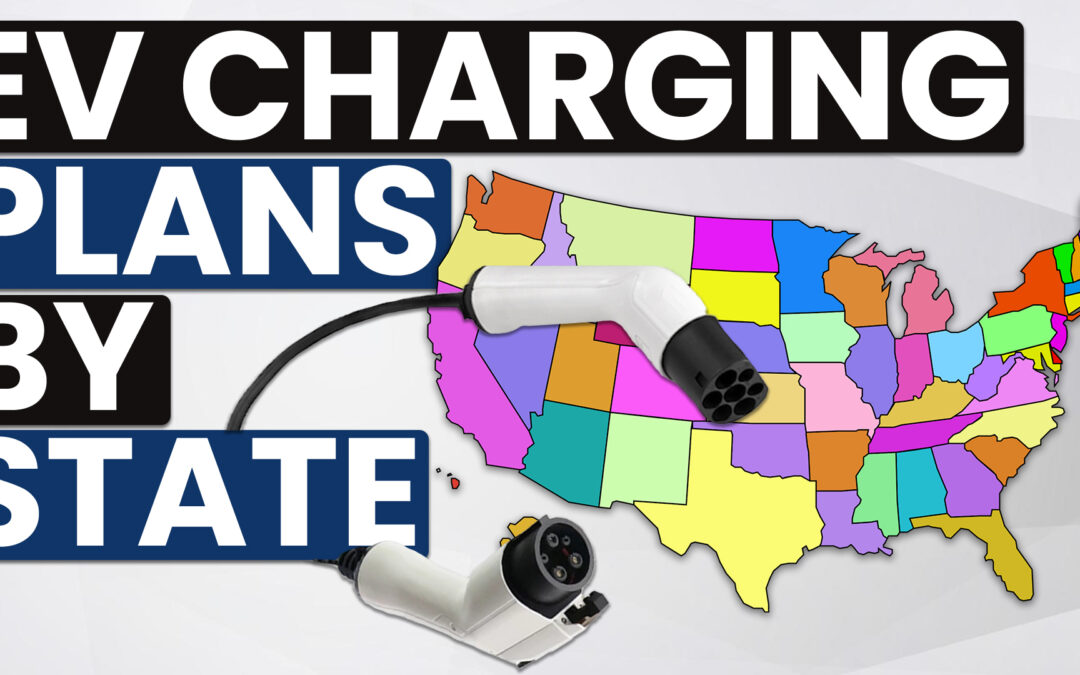
When the Bipartisan Infrastructure Investment and Jobs Act was signed into law in 2021, $1.2 trillion in federal funding was earmarked for dozens of projects ranging from bridge repair to internet access. Included in the massive package is $7.5 billion for National Electric Vehicle Infrastructure (NEVI), also known as the national charging network. States were tasked with submitting a plan for how they would spend NEVI funding, with a submission deadline of August 1, 2022. Now that states have turned in their EV charging proposals, we decided to create this resource with every state’s plans for how they’ll spend NEVI funding.
There’s a lot to unpack here. Phase one of this five-year initiative will prioritize DC fast chargers every 50 miles along Alternative Fuel Corridors, which are usually interstate highways. Once state NEVI plans are approved by the Federal Highway Administration, the contract bid process and construction will kick off in early 2023.
Fiscal year 2022 (FY2022) funding is based on the state’s population, size, and number of major highways. We’d love to hear what you think about how your state is planning to build out their portion of the national charging network.
With electric vehicle market share recently rising above 5%, it’s not too late to get the ball rolling on a national charging network. But time is of the essence. Sales data from Europe saw accelerated adoption once the 5% market share threshold was surpassed, and half of American drivers are interested in EVs.
Of greater concern is the many ways in which the build out of a national charging network could fall short, and this is what’s on my mind. Anyone who’s ever frequented Electrify America charging stations is well aware that malfunctioning charging stations are a lot more common than they should be. In my experience with my Hyundai IONIQ 5, it seems like one out of five chargers has issues.
Can states, the U.S. Department of Transportation and private partners install 500,000 chargers that are more reliable and less confusing than the status quo? Perhaps they could learn a thing or two from Tesla, whose Supercharger network is the gold standard. In many ways, the success of electric vehicles in America will rely on the success of the state plans shared here. I’d be lying if I told you I wasn’t feeling a bit of anxiety about how this could go!
Drop us a comment below. What’s your take on these state plans for the national charging network?